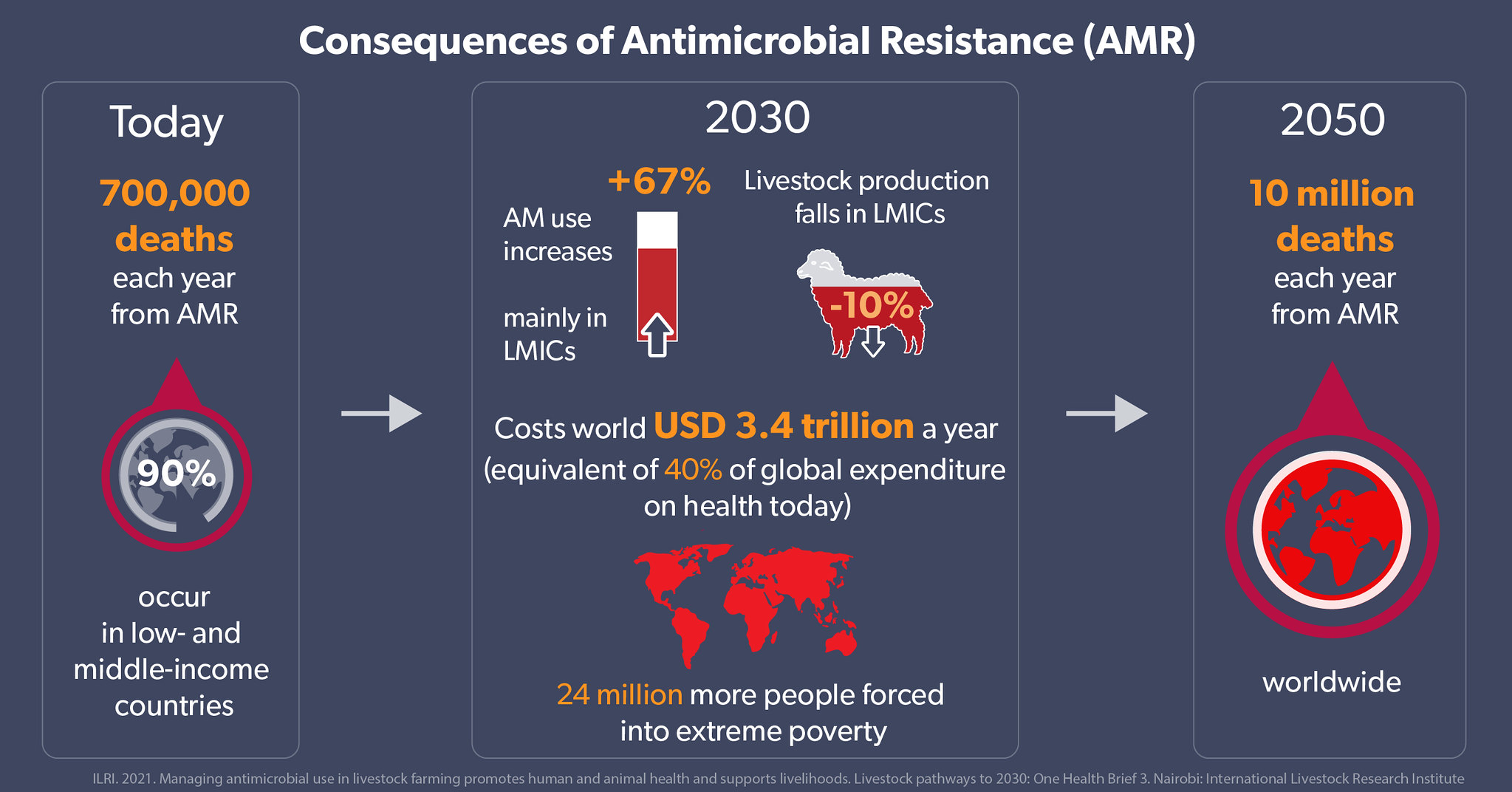Written by Ekta Patel
Antimicrobial resistance (AMR) is a global challenge, where drugs relied on to treat infections in humans, animals and plants will no longer be effective. Globally, drug resistant diseases already account for over 700,000 human deaths every year and the status of AMR in Africa is limited due to the lack of surveillance. Qualitative interviews with farmers in Africa demonstrate a lack of knowledge on both AMR and the importance of prudent antimicrobial use.
The World Health Organization has declared AMR as one of the top 10 global public health threats facing humanity and states that misuse and overuse of AMR are the main drivers in the development of drug-resistant pathogens. Last week, the OIE - Global Leaders Group on AMR called all countries to significantly reduce the levels of antimicrobial drugs used in global food systems, including the use of medically important drugs to promote growth in healthy animals.
A perspective by Christian Ducrot et al. (2021) published in the Journal of Emerging Infectious Disease evaluates the challenges faced by farmers in Africa. The perspective acknowledges that Africa reports lowest usage of antimicrobials in the world, however, the prevalence of antimicrobial resistance in foodborne pathogens isolated from animals and animal products remains high.
Ducrot, the lead author of the paper and deputy head of the animal health division at the French National Research Institute for Agriculture, Food and Environment says that ‘a major challenge is in implementing policies that would enable reduction of antimicrobial use on animals.’ He added that effective application of policies is dependent on minimizing adverse health and socio-economic impacts on the livelihoods of farmers in low and middle-income countries.
The authors, who are from the International Livestock Research Institute (ILRI) and French research organisations namely, The French Agricultural Research Centre for International Development (CIRAD), French National Research Institute for Agriculture, Food and Environment (INRAE), and Institute of Research and Development (IRD), advocate for policies that consider specific farmer needs, including improved access to veterinary drugs, and improved regulation of their use.
For more information: